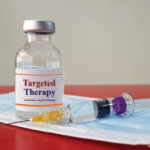A code change in the ICD-10 classification for Sjögren’s syndrome was approved by the ICD-10 Coordination and Maintenance Committee in July 2019 and becomes effective October 2020.


A code change in the ICD-10 classification for Sjögren’s syndrome was approved by the ICD-10 Coordination and Maintenance Committee in July 2019 and becomes effective October 2020.
Josephine Mason & Kate Kelland |
LONDON (Reuters)—Oxford University said on Wednesday it will study whether the prescription medicine, adalimumab (Humira), is an effective treatment for COVID-19 patients—the latest effort to repurpose existing drugs as potential coronavirus therapies. Adalimumab, which is sold by AbbVie, is a type of anti-inflammatory known as an anti-tumour necrosis factor (anti-TNF) drug. Recent studies have shown…

In August, Abbvie submitted a new drug application for upadacitinib to treat ankylosing spondylitis. And in September, the FDA approved an oral solution of tramadol hydrochloride for pain.
By Lisa Rapaport |
(Reuters Health)—Patients with a degenerative meniscus tear who get arthroscopic partial meniscectomy have similar five-year outcomes and increased risk of radiographic knee osteoarthritis (OA) as without surgery, a small study suggests. Researchers in Finland randomly assigned 146 adults with degenerative meniscus tear confirmed by magnetic resonance imaging (MRI) to receive either arthroscopic partial meniscectomy (APM)…

Physical inactivity significantly affects disease burden and reduces the overall quality of life in patients with knee osteoarthritis (OA), according to a study from Losina et al. The researchers calculated the total quality-adjusted life-years lost for U.S. patients with OA due to inactivity.

Christina Schutt, DO, FAAP |
The mother of a 15-year-old patient with juvenile idiopathic arthritis/enthesitis-related arthritis (JIA/ERA) called the office in tears. She said she was having an insurance problem. Her son had been a star track athlete when he developed severe back pain. Magnetic resonance imaging showed evidence of severe sacroiliitis. He was started on a tumor necrosis factor…

This summer, the FDA rejected a new drug application for filgotinib to treat RA in the U.S., but a European Medicines Agency committee issued a positive opinion, moving filgotinib closer to authorized use in the E.U.

When the first laboratory-confirmed COVID-19 case was reported by the Centers for Disease Control & Prevention (CDC) on Jan. 22, it was difficult to predict an ensuing global pandemic would last for more than half the year. Approximately one week after the initial CDC report, the U.S. Department of Health & Human Services (HHS) declared…

Nancy Bates Allen, MD, now professor emeritus, Duke University Medical School, Division of Rheumatology and Immunology, Durham, N.C., created a legacy of clinical care, clinical research, advocacy for women and collegial respect during her 42-year career at Duke. David S. Caldwell, MD, FACP, FACR, associate professor of medicine, Duke University School of Medicine, says, “[I’m]…

EULAR 2020 e-CONGRESS—In what speakers at the European e-Congress of Rheumatology described as the first treat-to-target and tight control (T2T/TC) strategy trial in axial spondyloarthritis (AxSpA), researchers found such a strategy has both health and financial benefits. In the year-long study—called TICOSPA—centers were randomized to apply either a T2T/TC strategy or care left to the…